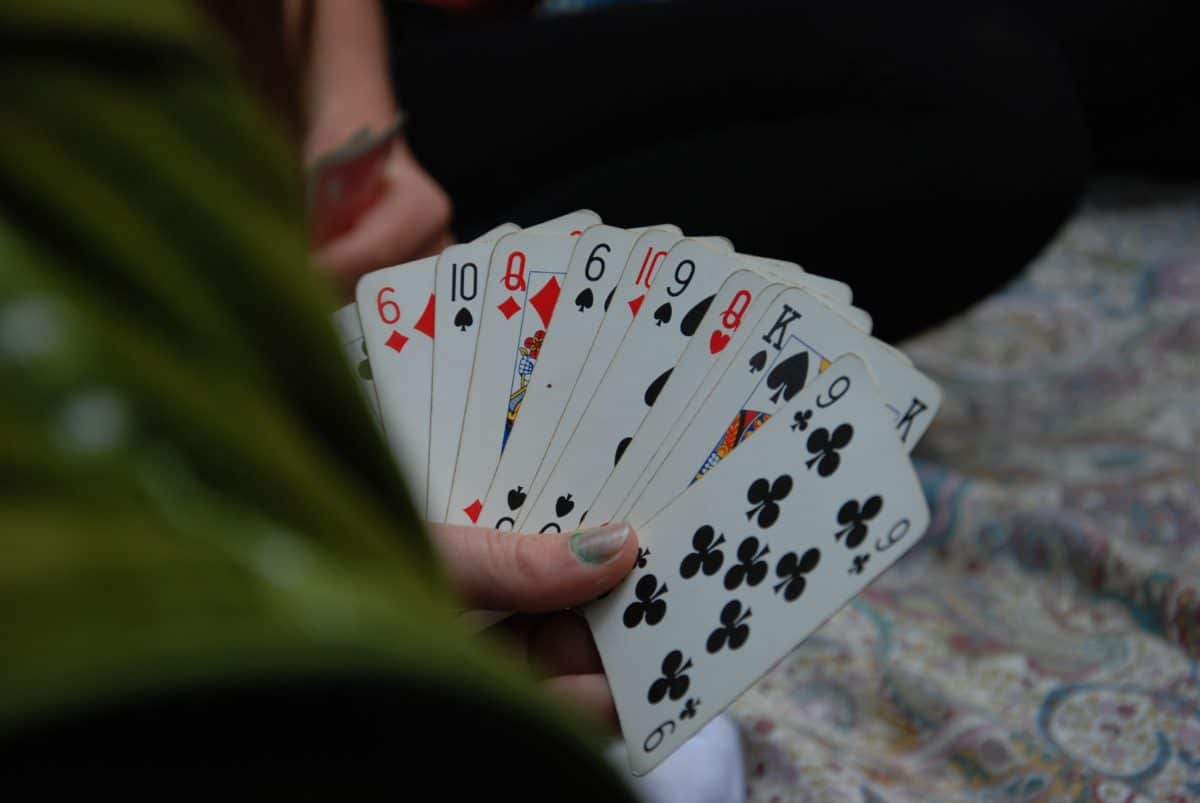Well let’s talk about the obvious first… if you have a full deck of each, you have a total of 52. Now, really thinking about it, that’s a lot of teeth! Both require a good foundation for stability. And, if some of the key players are removed willy nilly, the whole thing can cave in.
Fifty two cards, 52 teeth
The average person has 20 baby and 32 adult teeth. Incredible to think about, right? However, just like a deck of cards, some can go missing or someone could have added a few “extras” to the deck when they were playing. Some people don’t develop all of those teeth. Other people grow extra teeth, we call supernumeraries. At times, teeth need to be removed due to large cavities, infections, gum disease, or to create space for others.
Foundation is Key
If you’ve ever actually tried building a house of cards, you know your choice of surface to build upon is key to your success. If the table is too smooth, the cards slide around and quickly fall. If it’s too bumpy, the first story may work out alright but building up causes collapse.
Similarly, teeth need to have a good foundation for stability and health. We’re talking about the bone and gum tissue that hold the teeth. If the bone and gums aren’t healthy, teeth can be lost, pain experienced, and the state of the mouth deteriorate.
Just as in building the card house, the most work has to be done by ourselves to keep our mouths in a state of health and stability. We must brush a minimum of twice a day, floss once a day and get ourselves to the dental office regularly to get professional help that supports our home efforts. Think of it as carefully putting those cards next to each other, all leaning onto one another. One starts to slide a little but you’re holding on to an area already trying to prevent it from falling. Luckily, your mate is right there watching and catches the one that’s sliding and shores it up. Maybe he or she even improves the house a bit more. Thank your dentist, hygienist, therapist, or dental specialist for “shoring you up”!
Arghh, It’s Moving!
Then the unthinkable happens; you have this magnificent house of cards built and someone walks briskly past. The cards start to shudder a little. In the mouth this can equate to a cavity or the start of gum disease. It gets a bit wobbly but your dental team stabilizes the house with your help and life goes on.
Unfortunately, though, sometimes teeth need to be removed or you just never developed one. Now depending on where it is, it may not be a problem. Think of a wisdom tooth as that extra card you put on just to say you used the whole deck.
But, if you pluck a card right from the middle of your house, chances are everything is going to fall in a heap on the table. This can also be the case when baby teeth are lost too early or adult teeth extracted without further plans. The teeth directly next to the space start to move and not usually in a good way. The next teeth over feel the shift and follow. The tooth that used to bite with the lost tooth goes looking for its’ friend…starts to move into the space by moving vertically. These issues usually occur slowly and can be subtle. However, if left alone for too long, can create bite problems and the foundation to incur problems as well. The house falls down.
Wouldn’t it be nice if you could support that section of your house, so your lovely creation didn’t end in disaster? Well on the dental front, many times it can be stabilized. If it’s a baby tooth that’s lost too soon, talk to your dental team about the need for a space maintainer to hold the room needed for the adult tooth. Yes, many baby teeth are just as important as the adult teeth since they are holding the space for the permanent tooth to take its’ rightful place. The bite can change dramatically when key baby teeth are lost too early. This can also lead to added crowding issues as the permanent teeth try to find their way.
If it’s an adult tooth, talk to the team about options for holding or restoring the area to its’ original function. There are options such as implants, bridges, or removable appliances. Sometimes the space can even be closed up orthodontically. If none of these are options, talk to your dental provider about the potential long-term repercussions of your situation, what to expect, and how to address it.
About Us
Dr. Rachel Glancy is a General Dentist in Australia and an Orthodontist and General Dentist in the US. She has 20 years of experience as an US orthodontist and attends extensive continuing professional development courses. Her passion is patient education and promotion of oral health. To schedule your individualized, comprehensive orthodontic consultation, please contact Dr. Rachel Glancy at Avenue Dental Caloundra on the Sunshine Coast on (07) 5491 1111. To have the Avenue Dental Team help you build and support your house of cards, call Avenue Dental Caloundra (07) 5491 1111 or Avenue Dental Maroochydore (07) 5443 8111
https://www.avenuedental.com.au/our-sunshine-coast-dental-team/dentists/dr-rachel-glancy-dentist-caloundra/

